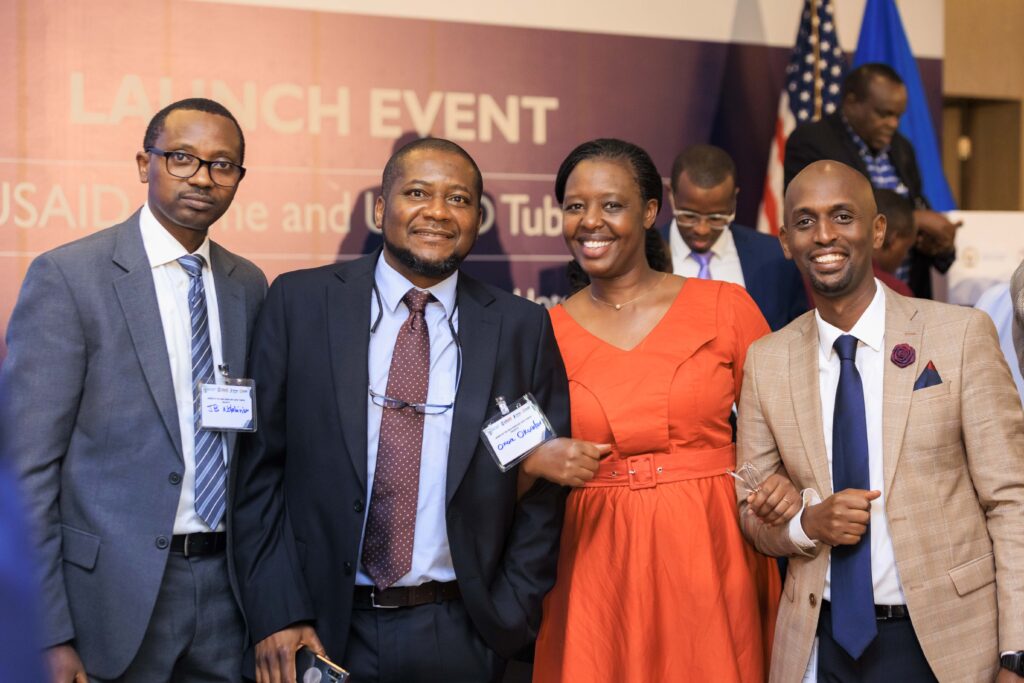Transitioning Rwanda’s Health Care: Official Launch of USAID Ireme
Transitioning Rwanda’s Health Care: Official Launch of USAID Ireme

On Friday, December 8, 2023, USAID Ireme was officially launched, drawing over 200 participants from across the Rwandan health sector. The event, graced by the Honorable Minister of Health, Dr. Sabin Nsanzimana, and US Ambassador to Rwanda, Eric W. Kneedler, served as a pivotal moment for stakeholders to delve into the project’s role in health sector development.
The Chief of Party of USAID Ireme, Dr. Anita Asiimwe, presented the project’s expected impact, emphasizing a comprehensive approach across three key areas: optimizing health financing; strengthening leadership, management, and governance at all health care levels; and enhancing the management of the health workforce.
“Quality health care is not just a service; it is a fundamental right. This firm belief has been the driving force behind our support, rooted in the vision of creating a healthier, more vibrant future for Rwandans,” said US Ambassador to Rwanda, Eric W. Kneedler. The USAID THRIVE Health Systems Strengthening NEXT Activity, also referred to as USAID Ireme, aims to “improve quality of care and strengthen…the countries’ systems to prepare and respond to emerging global health threats.”

The event facilitated an interactive question and answer session, enabling government and private sector representatives to gain deeper insight into the project’s interventions. Dr. Jean Nyirinkwaya, Chairman of the Rwanda Health Federation (RHF), expressed hopes for the project to extend support to private sector hospitals.
Addressing these concerns, Dr. Okore Okorafor, Health Financing External Consultant at USAID Ireme, outlined plans for facilitating collaboration between financiers and the private sector, including tailored loan products for health care services. Dr. Asiimwe highlighted the project’s emphasis on accreditation for both public and private hospitals, which is crucial for gaining access to funding.
The Honorable Minister of Health highlighted the project’s timely launch amid ongoing health sector reforms prompted by the challenges exposed during the COVID-19 pandemic. He emphasized the need to strengthen foundational elements, such as the capacity of health care workers, primary health care, and digitization to build a more robust health care system capable of responding to pandemics and diseases.
“After reviewing the project’s interventions, it becomes clear that the current challenges and gaps to further strengthen the health system will be addressed through health financing, human resource development, training, and capacity building at various levels. The design of this project is effectively addressing the existing gaps in the health care sector,” the Honorable Minister stated. “Great timing.”

USAID Ireme, a five-year Activity implemented by MSH in collaboration with consortium partners—the Centre for Impact, Innovation, and Capacity Building for Health Information Systems and Nutrition (CIIC-HIN), the Health Information Systems Program (HISP) Rwanda, and the PharmAccess Foundation—aims to closely collaborate with various Rwandan institutions, especially the Ministry of Health. The project focuses on optimizing health financing; strengthening leadership, management, and governance at all health care levels; and enhancing the management of the health workforce. This comprehensive approach will focus on improving health care quality, further strengthen the health system, and create resilience for sustainable quality services, ultimately leading to improved health outcomes for Rwandans.
“As USAID Ireme is a continuation of other health systems strengthening efforts, we anticipate and are hopeful that this is a journey we will continue to walk with our partners in the government and other stakeholders,” said Dr. Asiimwe. “USAID Ireme will have nationwide coverage, engaging stakeholders at both the national and decentralized levels. Our primary objective is to witness, by the end of the five-year period, an improved health system characterized by increased resilience, efficient and effective resource utilization, and improved access to quality health care services.”